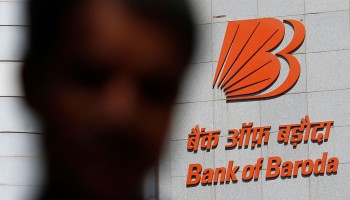Zuma ratified the Financial Inteligence Centre Amendment Act after initially sending it back to parliament in November for changes, arguing that provisions allowing for warrantless searches were unconstitutional.
The bill was drafted to meet guidelines set by the Paris-based Financial Action Task Force, and is aimed at making it easier to investigate crimes such as money laundering and terrorism financing.
The president’s office said in a statement the bill would "make it more difficult for people to hide behind shell companies and trusts, and also help the government fight terrorism financing."
Zuma, who has run South Africa since 2009, has faced mounting public anger over alleged corruption by the governing African National Congress.
A report released by South Africa’s Public Protector, Thuli Madonsela, last year accused Zuma of fostering a potentially corrupt relationship favoring the interests of the country’s wealthy Gupta family. Zuma has resisted calls by Madonsela to establish an independent commission of inquiry.





